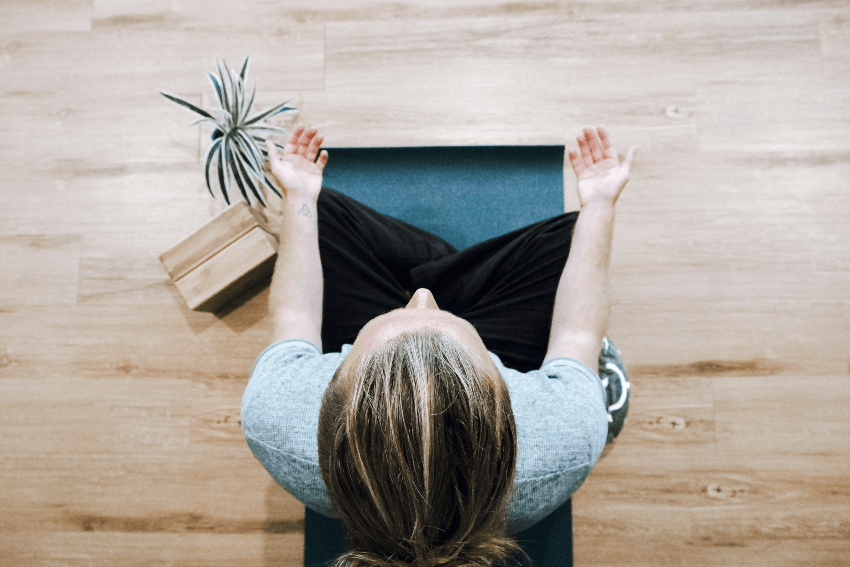Wellness
The power of our mind to generate serenity and well-being
The consequences of the emergency have been heavy for everyone, for many tragic and irreversible. And, unfortunately, they are not yet over.
Many of us are aware that it now makes more sense than ever to consider the effects of the pandemic as a point of reference from which to start again, and to reflect on a new model for the quality of our lives.
Never before has life asked us to be strong and, above all, it asks us for results: the quality of these results depends on the energy we have and the ability to reschedule our minds.
Where do we get the energy to face everything?
We commonly think that the energy we need inevitably comes from the nutrients we take in, including air, water and physical activity.
This is true, but it is not enough: the power to get all the energy we need is also, and above all, in our minds!
Let us remember that it is always possible to change ourselves and the quality of our lives for the better. Several scientific studies confirm that, compared to those who consider their abilities and characteristics as immutable, people who adopt an “evolutionary” mental attitude are very likely to be able to change exactly as they wish.
It is in our mind that lies the ability to direct, manage, coordinate and activate the functioning of our entire organism: it is therefore inevitably linked to our well-being and health.
How is our mind made up?
It can be said in a nutshell that we are made up of “two minds”: the “conscious mind”, which is the rational and analytical mind, and the mind called the “subconscious mind”.
The presence of these two parts of the mind is the reason why sometimes, although we want to feel good, our intentions do not match our interior state.
While our conscious mind aspires to a state where everything goes well, fears and reactions are triggered within our subconscious mind that give us the feeling that we have nothing under control, destroying our intentions to make everything go well. This happens because, however rational we may be, there are and always will be many “hidden” thoughts that influence us.
It is not easy to discover what remains
The subconscious mind controls the highest percentage of our thoughts, emotions and actions, which is why we need to understand how to “reprogramme” it and become more in control of our lives. Our brain has a huge potential and it is up to us to make the most of it.
Reprogramming our subconscious: is it possible?
The answer is yes: it is complex, but you really need to start with the right foot. By encouraging new ideas and suggestions to the mind, new neural connections are created.
If there is always the same road ahead of us, the one we have been following all our lives, and it doesn’t make us feel good, then it is our job to stop and find a way to change it.
By working with our mind we have the ability to generate well-being or distress, even if we are not aware that we can do so. Feeling good depends on our mind’s ability to manage and deal with life and the situations it offers us, as effectively as possible.
The programming of our mind
Our mind programs itself from the messages we receive during childhood. What happened in the past left its mark on our psychic world and ends up in oblivion. But it returns and manifests itself in our daily lives through our personal patterns of behaviour.
Our well-being or our distress depends on this programming: it is all about how we have learned to react and feel when faced with certain situations in life and especially in our relationships with others. It is essential to understand that the programming of the mind remains engraved in our subconscious, and from there our problems in different aspects of life are generated.
In order for a change it will be necessary to “reprogram our mind”, to put it in a position to generate attitudes, behaviours, thoughts and sensations related to well-being. We will see more about the “how” in future articles.
Training for self-observation
Taking the control of our real well-being implies the need to enter the depths of our mind. Because the subconscious mind is not so easily accessible, it is important to exploit the capabilities of our conscious mind and learn to self-observe our thoughts, emotions, habits and behaviours.
A bit like saying we need to learn to “observe ourselves as we look out of the window”, dividing our attention: one part directed at what is in front of us and one part directed at ourselves.
We will realise almost immediately that we cannot observe ourselves. After a few seconds we will be absorbed into that ordinary condition in which we “live”, which could be called “sleep”.
In this delicate condition there is no ‘I am’, there is no presence, there is no adherence and contact with the interior experience and therefore with what happens to us.
But by training ourselves daily in self-observation, we will soon be able to see unexpected benefits that we will explore further on the way!
Thank you for your attention
Emanuela



